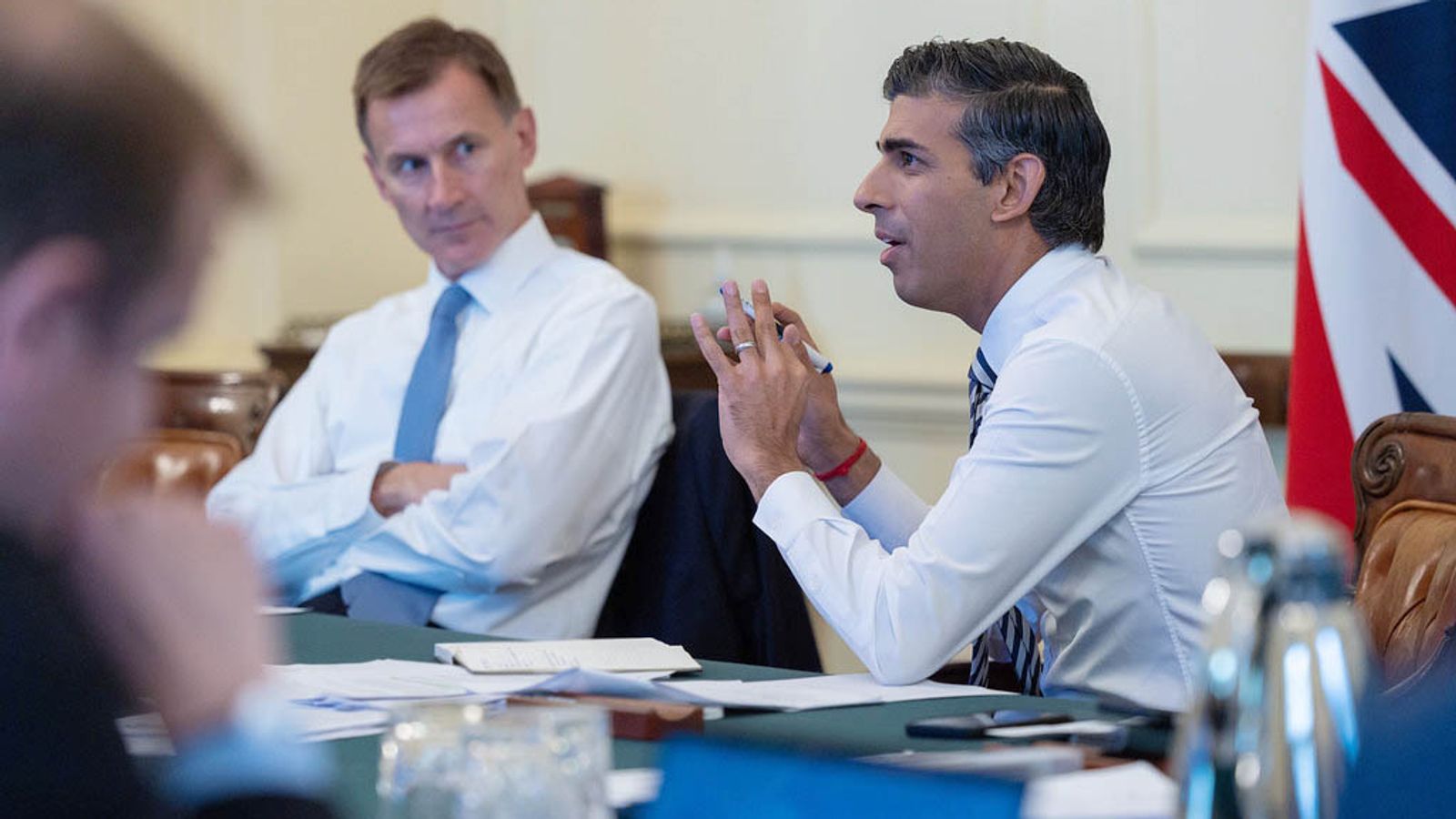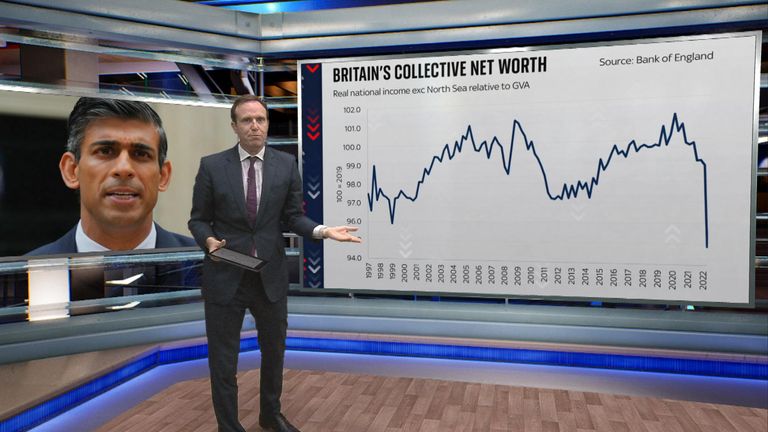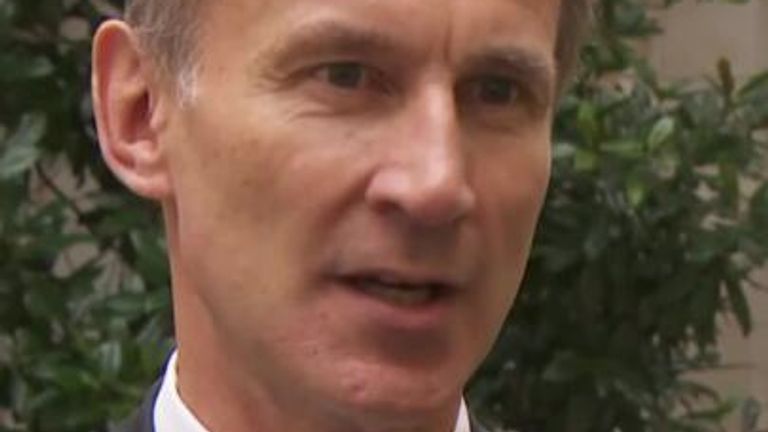Tax rises are “likely” to come soon as the government faces an “unpalatable menu” to find ways to fill a £40bn fiscal black hole, a leading think tank has warned.
A Resolution Foundation report suggests Rishi Sunak and his Chancellor Jeremy Hunt face a thankless task to re-balance the nation’s finances after former chancellor Kwasi Kwarteng’s ill-fated economic plans.
At least £40bn will need to be found by the government on the backdrop of a gloomy economic outlook as part of the fall-out from Liz Truss’s disastrous mini-budget, the think tank said.
A combination of tax rises and spending cuts is likely to find that £40bn, it said.
Mr Sunak and Mr Hunt are currently figuring out how to tackle the abysmal economic forecast ahead of the Autumn Statement on 17 November, which was pushed back soon after Mr Sunak reappointed Mr Hunt.
A recession next year could be predicted by the government’s independent forecaster the Office for Budget Responsibility, the report said.
And GDP forecasts could be cut by up to 4% by the end of 2024.
Unemployment could also rise by around half a million and the weaker economic outlook could bring borrowing up by around £20bn a year by 2026-2027, the report said.
“The government has a little over two weeks to finalise its plans to repair its economic credibility and the sustainability of the public finances,” said James Smith, research director at the Resolution Foundation.
“While the recent focus has been on conditions improving post-Trussonomics, the central picture remains one of a weaker growth, higher borrowing costs and expensive tax cuts that have left a fiscal hole of at least £40 billion to fill.”
Fiscal rules hard to stick to
The report warns the government may find it difficult to meet its fiscal rules of reducing debt-to-GDP ratio in the medium term and delivering a current budget balance unless “significant further policy action is taken”.
It said the chancellor’s “menu” of options includes investment spending cuts, which could save £10bn but could have a detrimental impact on growth.
The government could also choose the “austerity option”, with already-squeezed department budgets being cut. Mr Hunt has already said all departments must find savings.
“With inflation at its highest level for 40 years, government departments are already seeing their budgets fall in real terms by around £22bn by 2024-25,” the think tank said.
“It is hard to see how the Treasury could credibly save more than £20bn by announcing cuts to day-to-day public service spending.”
Read more:
Demand for mortgages falls as customers grapple with high interest rates
Food shortage and inflation risks rise after Russia withdraws from Black Sea export deal
‘Huge impact’ by not raising benefits and pensions
By not raising benefits and pensions in line with rising prices next year, the study suggests the government could save £9bn.
But it warns that would have a “huge” impact on those struggling, with a low-income working family with two children losing around £750 and a pensioner £342.
Another option would be to re-instate the health and social care levy to raise £15bn by 2026-2027, while around £2bn could be raised by extending the “stealth” freezes in income tax threshold by a further year to 2026-2027.
Public investment projects are likely to face cuts as history shows they are “easy to announce but reduce growth in the longer term”, Mr Smith said.


